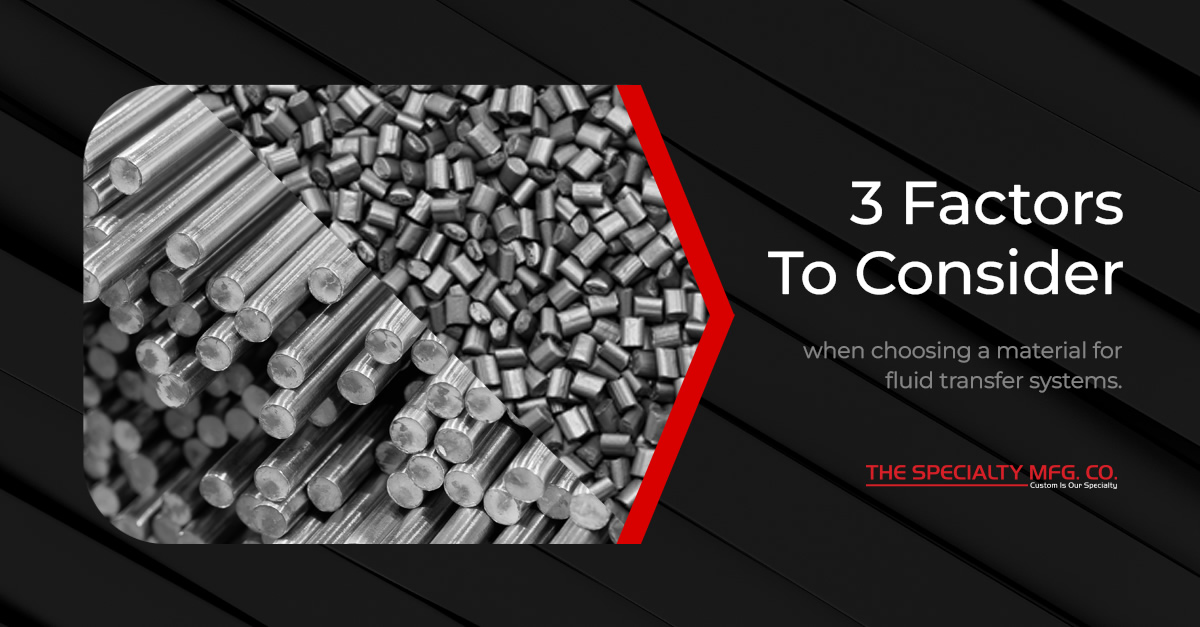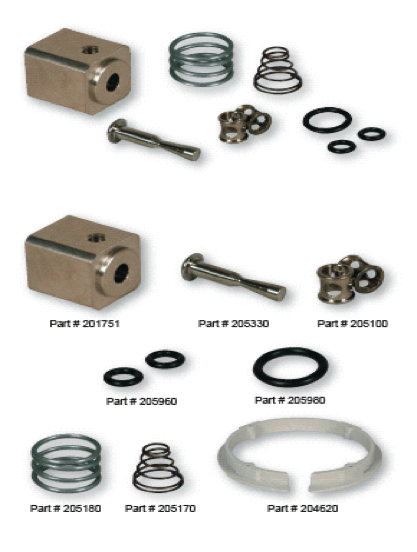When it comes to selecting or designing a valve, selecting the right material is crucial for ensuring efficiency, longevity, and safety. Factors like operating pressure, temperature fluctuations, and fluid type all affect valve performance. If a valve material is not compatible with your application’s operating conditions, it can cause issues like premature wear, corrosion, and costly system damage or failure.
By understanding the factors that go into selecting a valve material, you can prevent these issues and optimize your fluid transfer system’s performance.
1. Fluid Compatibility
Whether it is corrosive chemicals, hydraulic fluids, or delicate pharmaceutical compounds, valve materials must exhibit compatibility with the intended medium to prevent fluid degradation or contamination. Corrosive and abrasive fluids can also damage your valves, resulting in leaks, accelerated wear, and component failure. Begin narrowing material possibilities by considering:
- The nature of the medium that will flow through the valve: water-based, synthetic, petroleum-based, acidic, abrasive, etc.? Does the application involve the use of any additives?
- Fluid temperature, which can accelerate wear and damage some materials over time
- Flow rate and the frequency of fluids flowing through the valve
Material recommendations: stainless steel for corrosive fluids, KYNAR for aggressive solvents, and medical-grade polymers for pharmaceutical compounds.
2. Application Temperature and Pressure
High-pressure applications, high or low temperatures, and the stress of cyclic loading can weaken some materials and cause valve failure. For these reasons, it is critical to consider operating pressure, load conditions, and temperature tolerance when selecting a valve material.
By carefully assessing the anticipated operating conditions, engineers can select materials that ensure optimal performance and reliability. Further target possible material options by:
- Evaluating the operating environment’s temperature to understand how the material will maintain functionality. Remember to consider temperature fluctuations caused by weather and exposure to heat emitted by other equipment.
- Determining operating pressure parameters and fatigue resistance to verify whether the material can handle the stress without failure.
Material recommendations: stainless steel for high temperatures, and reinforced polymers for high-pressure conditions.
3. Regulatory Compliance
Adhering to industry compliance regulations is a non-negotiable aspect of selecting a valve material. Familiarity with these regulations ensures that materials are not only safe but legally approved for use in their respective applications. Some common regulations are:
- National Sanitation Foundation (NSF): This organization sets the standard for food, water, and consumer goods products.
- Food and Drug Administration (FDA): The FDA oversees the safety of drugs, medical devices, food, and other items affecting public health.
Do You Need Help Selecting a Valve Material?
Carefully considering fluid compatibility, application temperature and pressure, and regulatory compliance helps engineers and designers select materials that optimize fluid transfer system performance, durability, and safety.
With over 125 years of experience, the engineering team at The Specialty Mfg. Co. can recommend the right valve option and material for a wide range of applications and industries. Contact our team to determine the right valve for your fluid transfer system.

